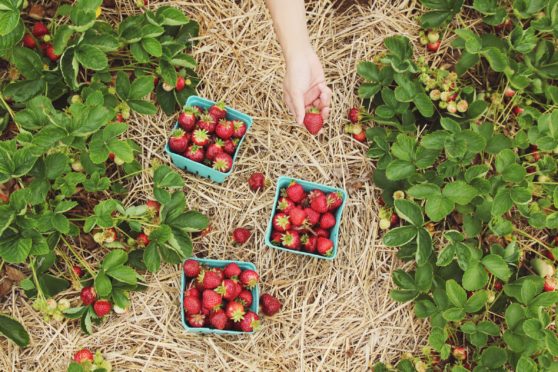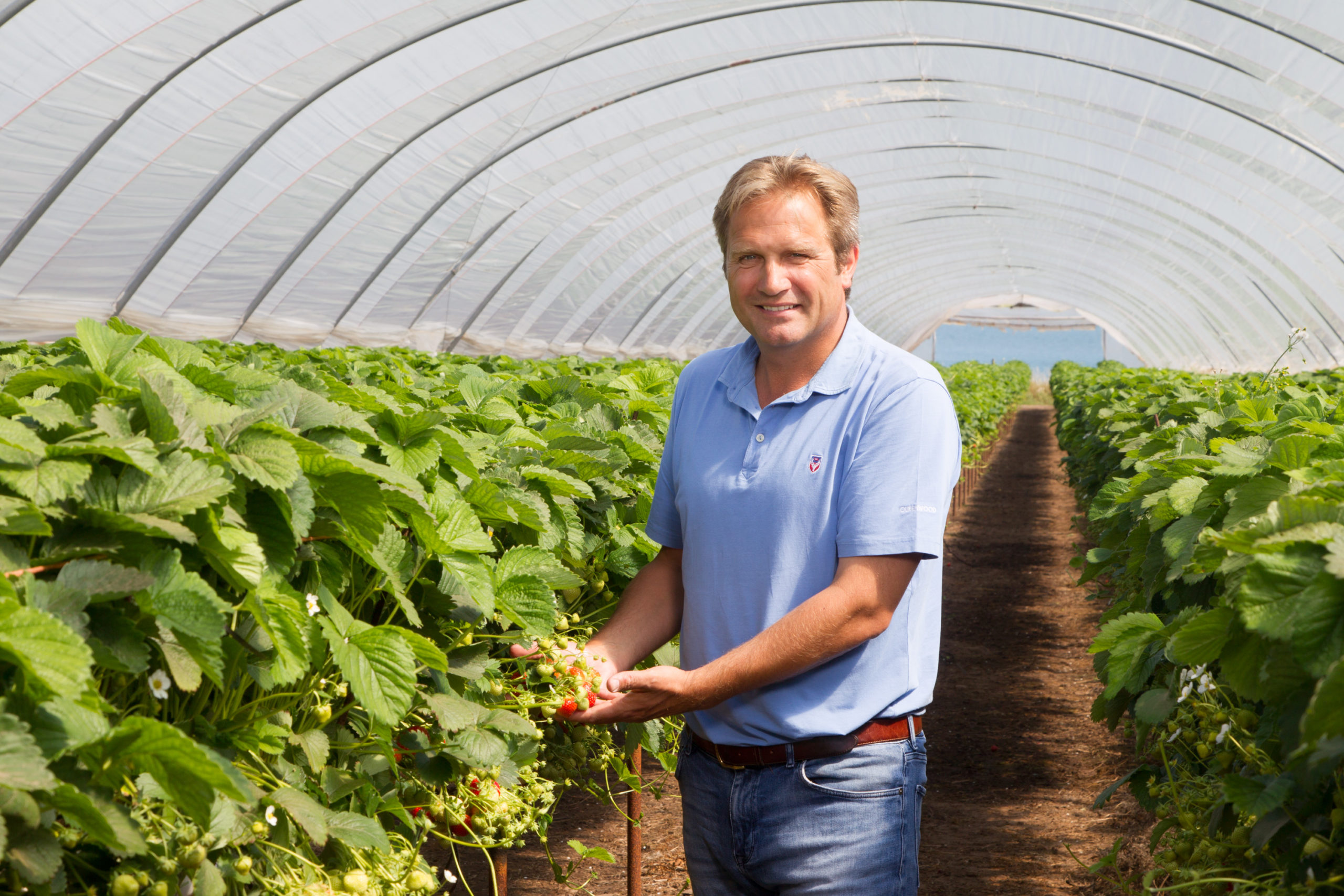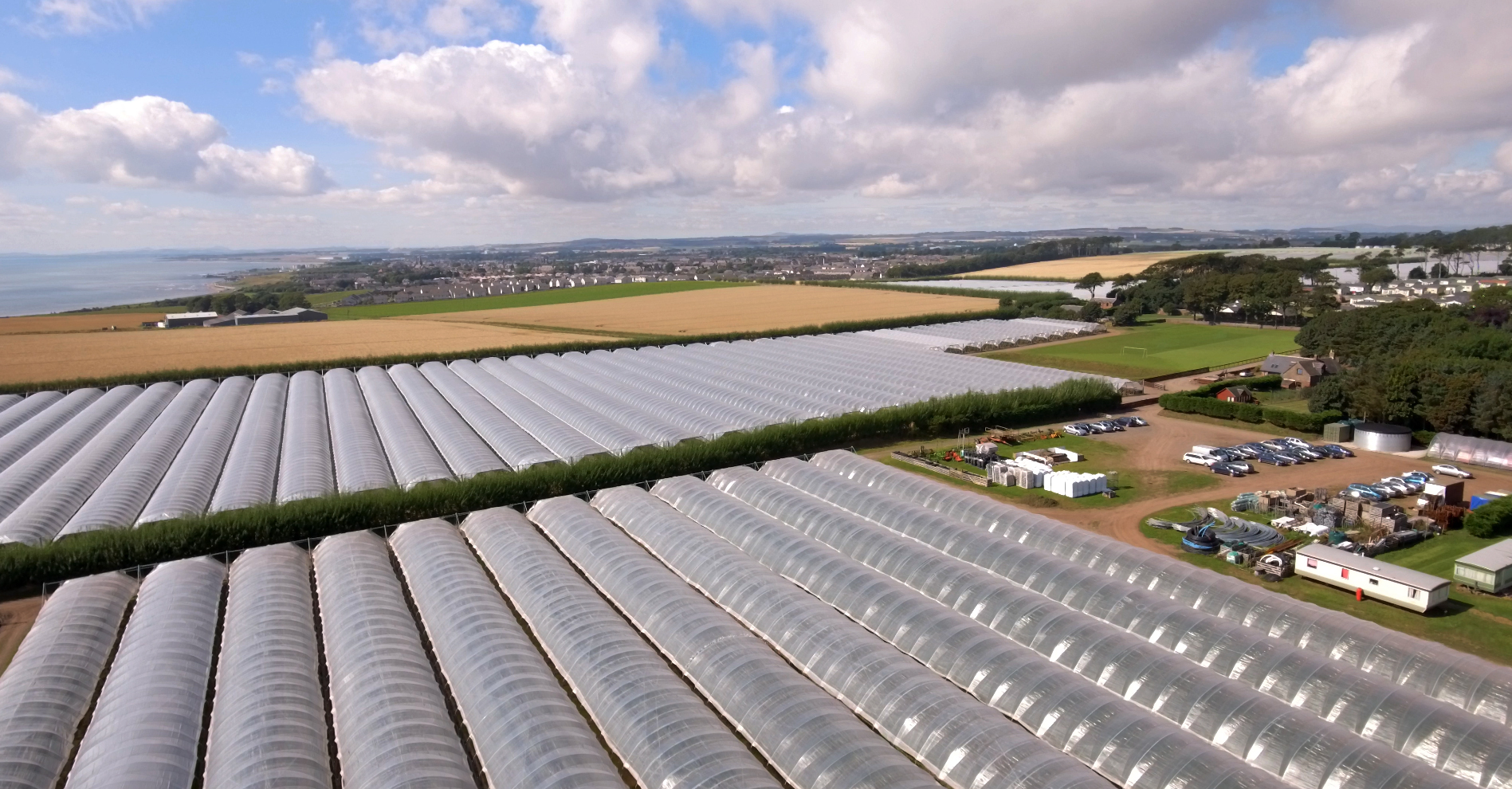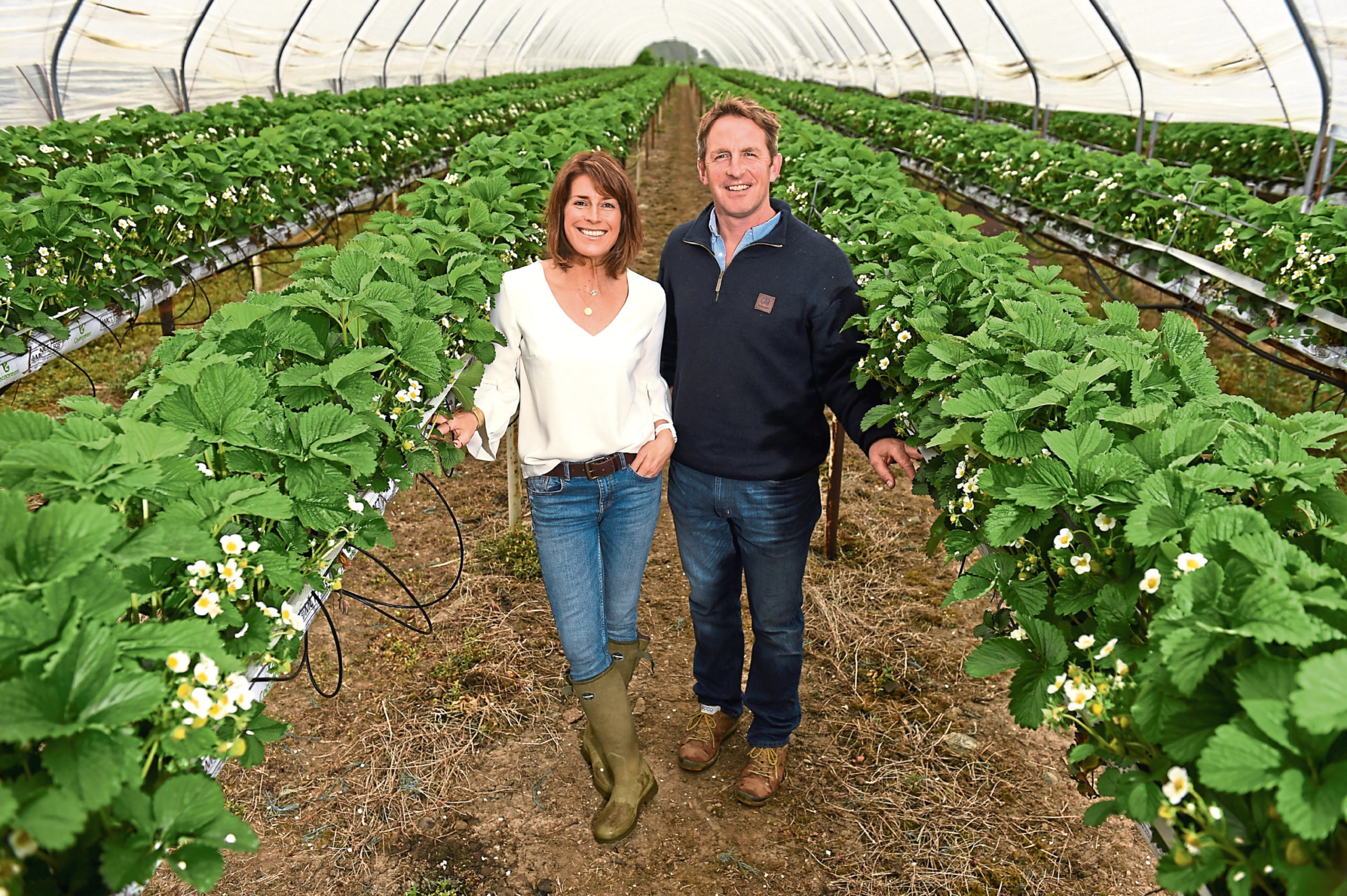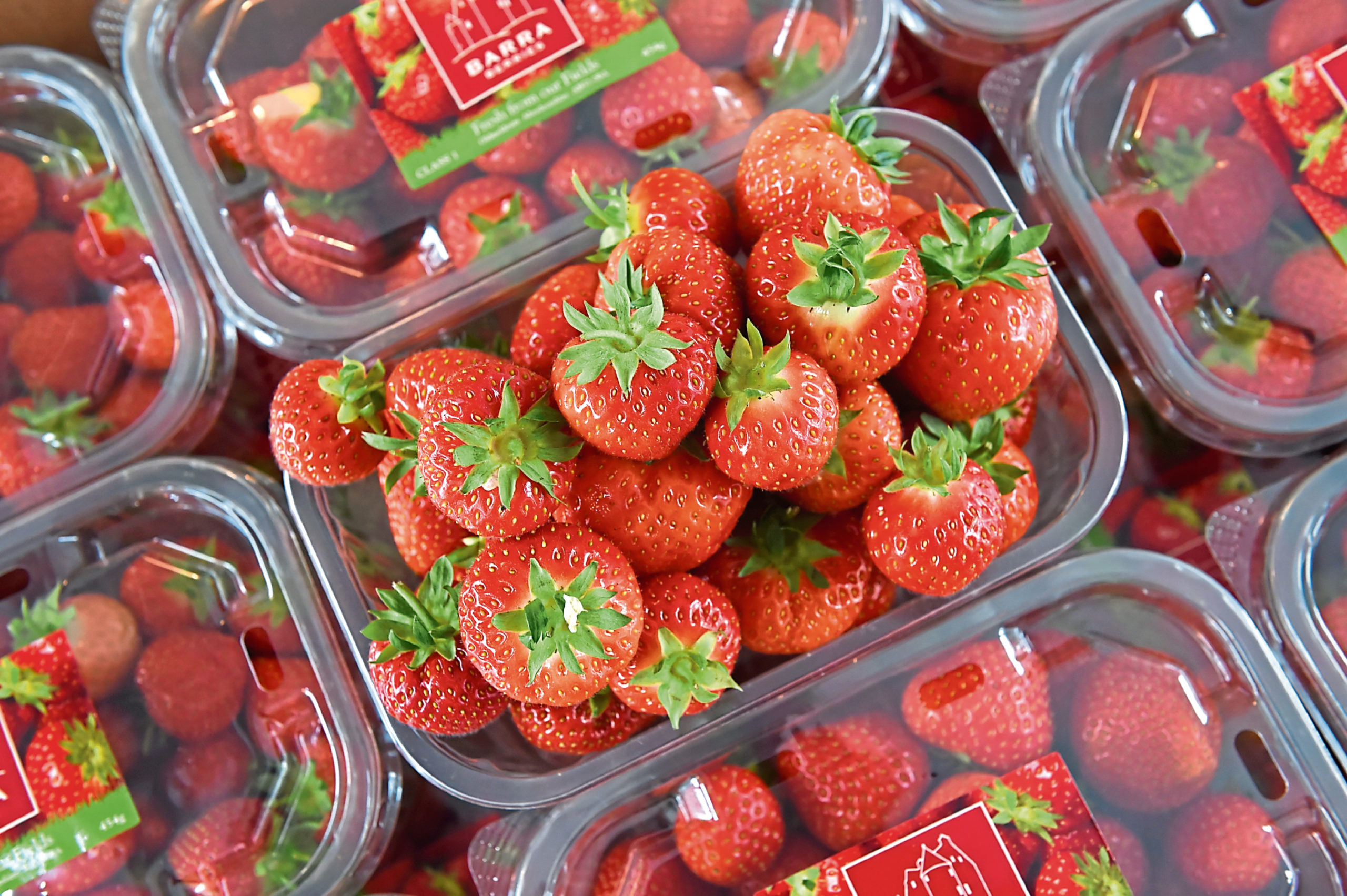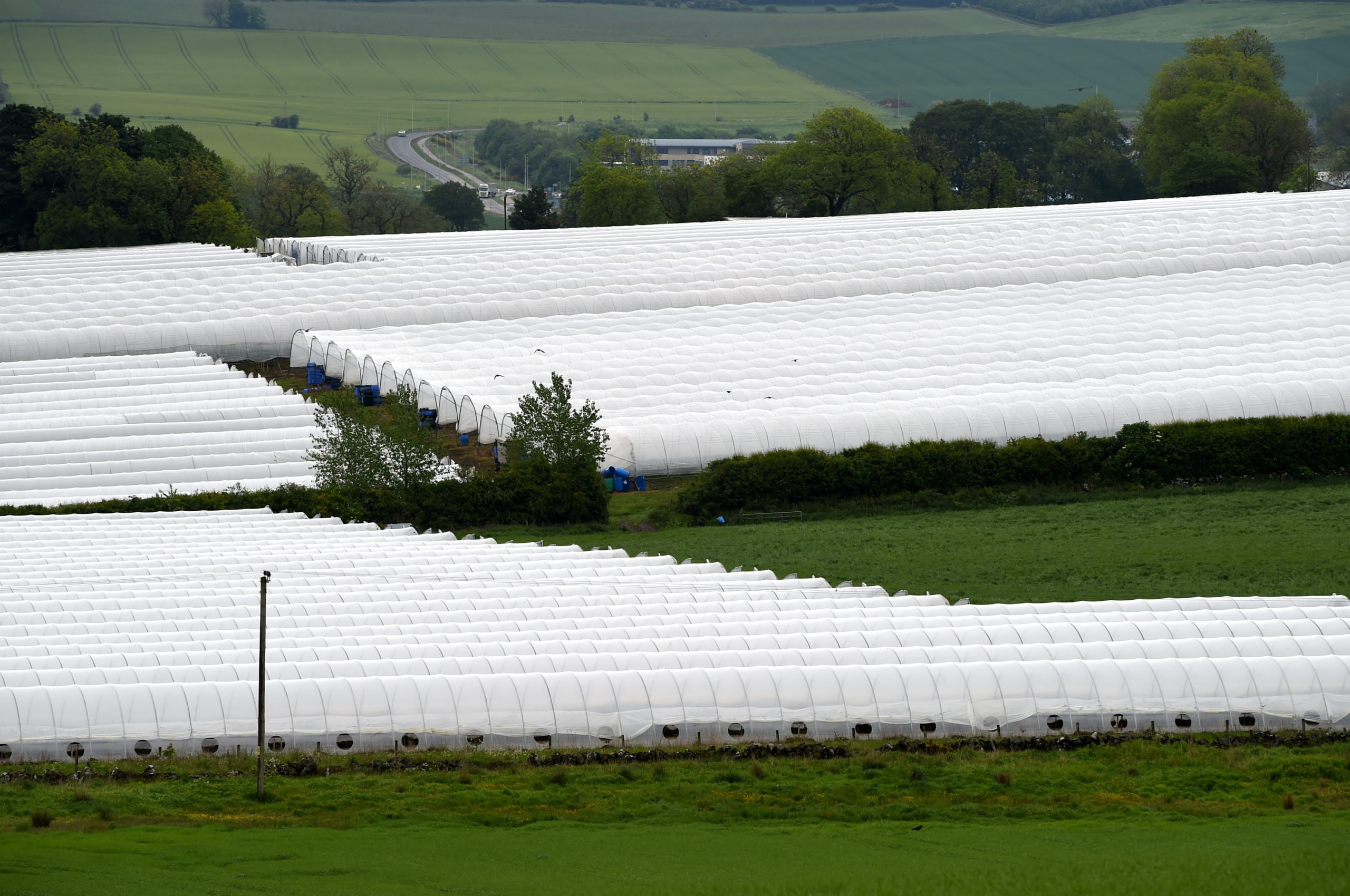Thousands of people have come to soft fruit farmers’ rescue by signing up to pick produce for this year’s harvest.
For the farms, it’s the first time in years they’ve had so much local interest in the work – but it means there is a huge job to be done in training and preparing their new employees who would usually come from elsewhere in Europe.
One soft fruit farm owner who has seen more than 1,000 applications come in from those living locally and across the region is Lochy Porter, co-owner of East Seaton Farm, part of Angus Soft Fruits.
He said: “We normally have around 1,000 pickers between the two farms. Mostly, they are from Eastern Europe but obviously that has changed a lot this season. We’ve worked closely with Angus Growers, The Scottish Government and others to try and find a solution.
“Angus Growers [a group which is made up of around 17 fruit farms], put out an advertisement to see if there was any interest in getting involved in picking as there’s a lot of people off work just now. They’ve had several thousand people applying and we’ve had more than 1,000 alone with more coming in every day. We were very overwhelmed and pleasantly surprised at the level of applications.
“There are a lot of people across Scotland not working just now and are looking for work and there’s students who have been working in hospitality and don’t have a job right now, too. We’re just in the process of going through all of the applications now.”
Starting on the National Minimum Wage of £8.72 per hour, many soft fruit farms have a range of incentives in place for overtime and the weight of berries picked, making the labour-intense job much more appealing to those out of work.
He added: “The working day can vary in the sense of time. When it’s hot, work starts potentially as early as 4.30am or a little later, and finishes around 1pm.
“Regarding rates of pay, we follow the National Minimum Wage so it’s £8.72 an hour as a standard for those over 18. After eight hours in any day or 40 hours in any week it then goes up to £13.08 per hour. There’s a bonus paid on the picking too if they hit a certain amount of kilos per hour.”
But when it comes to getting the new pickers up to speed, how do you go about training a workforce of 1,000?
“We do quite a bit of training and many people return from over the years,” said Lochy.
“People starting need a little more training. The whole training process is going to be different. You see in supermarkets the social distancing thing, two metres is the rule and it can be quite difficult to manage. We’ll be enforcing that, too, of course. Then there’s hygiene and washing hands – this is a big thing for us, and then there’s using sanitisers and constantly keeping everything clean. It’s critical. We’re very conscious of the safety side of things. It just takes managing and keeping alert.
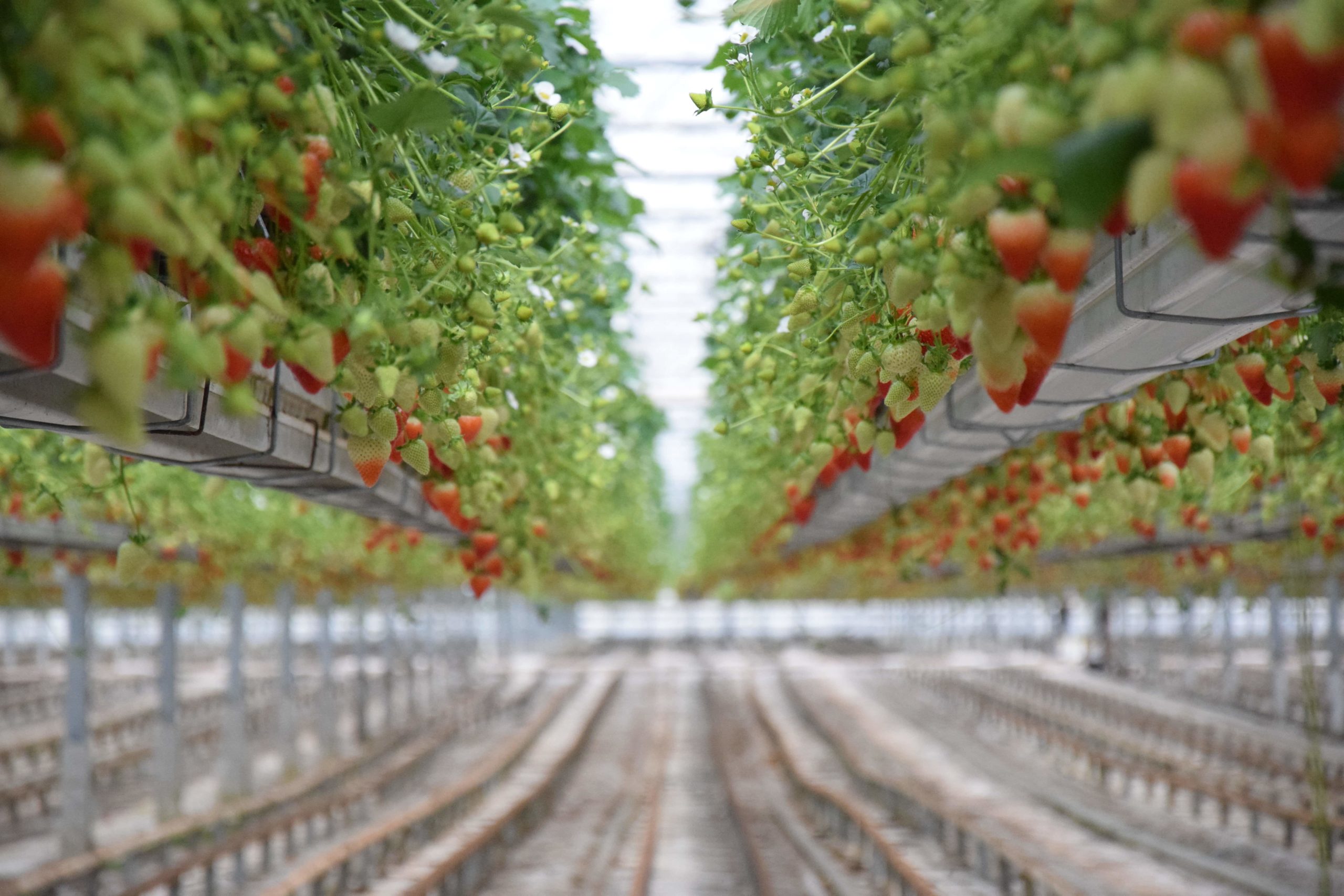
“For those staying on site, they will be assigned to a caravan and will be put into a team with other individuals from that accommodation. There is usually around four people in each one and they are self-contained. You’re really socialising in your own group. Pickers are out all day in the fields and we have space for them to exercise as well. Our communal areas have all been closed off.”
With no sign of lockdown regulations being lifted and uncertainty around when that will happen and what that will look like, Lochy says they can only prepare as best they can for how local workers will react when it comes to jobs becoming available again.
“If and when lockdown is lifted then people will get the opportunity to go back to their old jobs. I’m sure they would take these in a second but we just need to manage that process. Contingency wise, we would be looking to top where there was a shortfall with pickers from Eastern Europe, which is really what has been done before. There is a lot of people in the UK looking for work just now and we’re embracing having local people looking for work and trying to support in this way. It’s very challenging times for everyone but anything to keep the spirits up is a good thing.”
Aberdeenshire soft fruit farm owner David Stephen of Barra Berries in Oldmeldrum, echoes Lochy’s views and concerns when it comes to recruiting, retaining and looking after staff, some of whom will also be staying on his site.
Employing around 70 pickers for the season, David, who says this is the first time in 15 years the firm has had a strong interest from locals for picker roles, is very much looking to help support those in the area who have found themselves without jobs as much as possible.
He said: “We haven’t employed staff yet but we’ve had a huge response to our social media adverts.
“We made provisions in December for our normal workforce who usually originate from Poland or the Czech Republic and we had all of the numbers in place at that stage. Since then the uncertainty on whether they are going to be able to travel and whether they should travel has pushed us down the road of looking more locally now.
“It’s the first time in 15 years we’ve really had local interest to be honest. There’s a combination of people who live close by in Oldmeldrum who may have lost their job and need work, to someone who lives in Cornwall and is able to travel. Our advert is UK wide but the majority of the people who are local are anyone north of Dundee. There’s also those people who are currently traveling and have been working in a bar which has closed and need work.
“We’ve got a core crew here working and we will hopefully be able to do the majority of things prior to the fruit needing picked.”
Kicking off at the later time of 6am, Barra Berries also offers incentives for staff, paying in percentages to marry up with the yield they pick.
“We start picking around 6am – there’s other farms which will start at 4.30am. It’s really just trying to miss the heat of the day as fruit doesn’t like being picked in the heat. They could be finished at lunchtime or even mid-afternoon, it just depends what the conditions are like. At peak times they could be working a 10 or 12-hour day. It’s very different to picking strawberries in days gone by, we now have a lot more legislation in place to protect people.
“Everyone working is paid minimum wage but we have incentives for people to make more money. We need to have a certain level of output for us to be able to do so. We train them and teach them the fastest way to pick. The more multiples people pick of the minimum amount, the more money they get. So if they pick 50% more, they get 50% more money.”
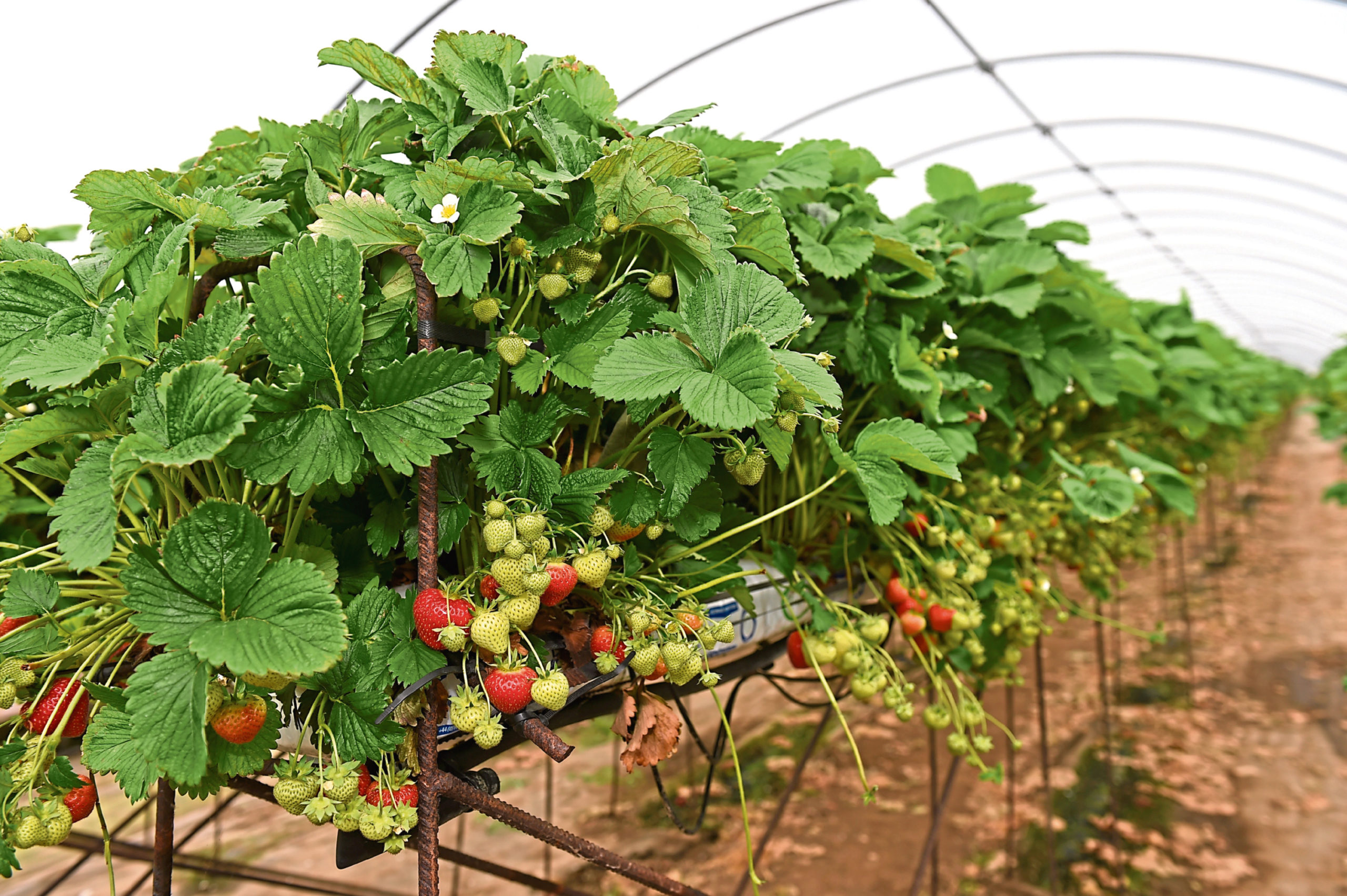
Kicking off at the end of May and running until the end of September, peaking at the end of June, David is currently working on practices and procedures to ensure every member of staff is cared for and safe at work during the soft fruit farming season.
He added: “Social distancing is going to be a big problem for us when training. We’re two months away from picking and we’re in the midst of getting procedures in place so no one is picking within two metres of someone else. We’re trying to segregate those living in the same areas to be working in the same space so they’re not really mixing with others. Training is very much down to the individual; some pick it up in a matter of hours but everyone is usually pretty good after a week. We pick until the end of September but it is usually low numbers working then.
“We have static caravans which house six people. There’s a kitchen, living room and three bedrooms. People are sharing and we renew the caravans every year to keep the standards up. People are well informed as to what they are coming to when we recruit them. Fruit farms are a really social place. There’s a lot of people working at times and we usually have around 70 people working in peak times.”
David’s only concern? If those applying can handle the different elements the physical job requires.
“We’ve always been keen to take on local people, and this is a strange time we’re living in as the unimaginable has happened and there’s no other work really,” said David.
“It will be interesting to see how people can adapt to it and whether it’s something people can actually, and are willing to do. It’s very physical. Some people love it, and others will hate it.
“The only thing we’re a little concerned about it that yes we have lots of interest, but is the job something they can adapt to?
“It could see us starting with a local squad as the season gets going. No one knows how quickly or when shops or bars will open. It could be that someone starts picking fruit but then maybe goes back to their job when the other places open again. Hopefully at that stage the borders open again and the original workforce who had planned to come would be able to come and fill any of those gaps.
“I guess our main hope is that the season goes alright and that people come here and enjoy the job and make some money.”
